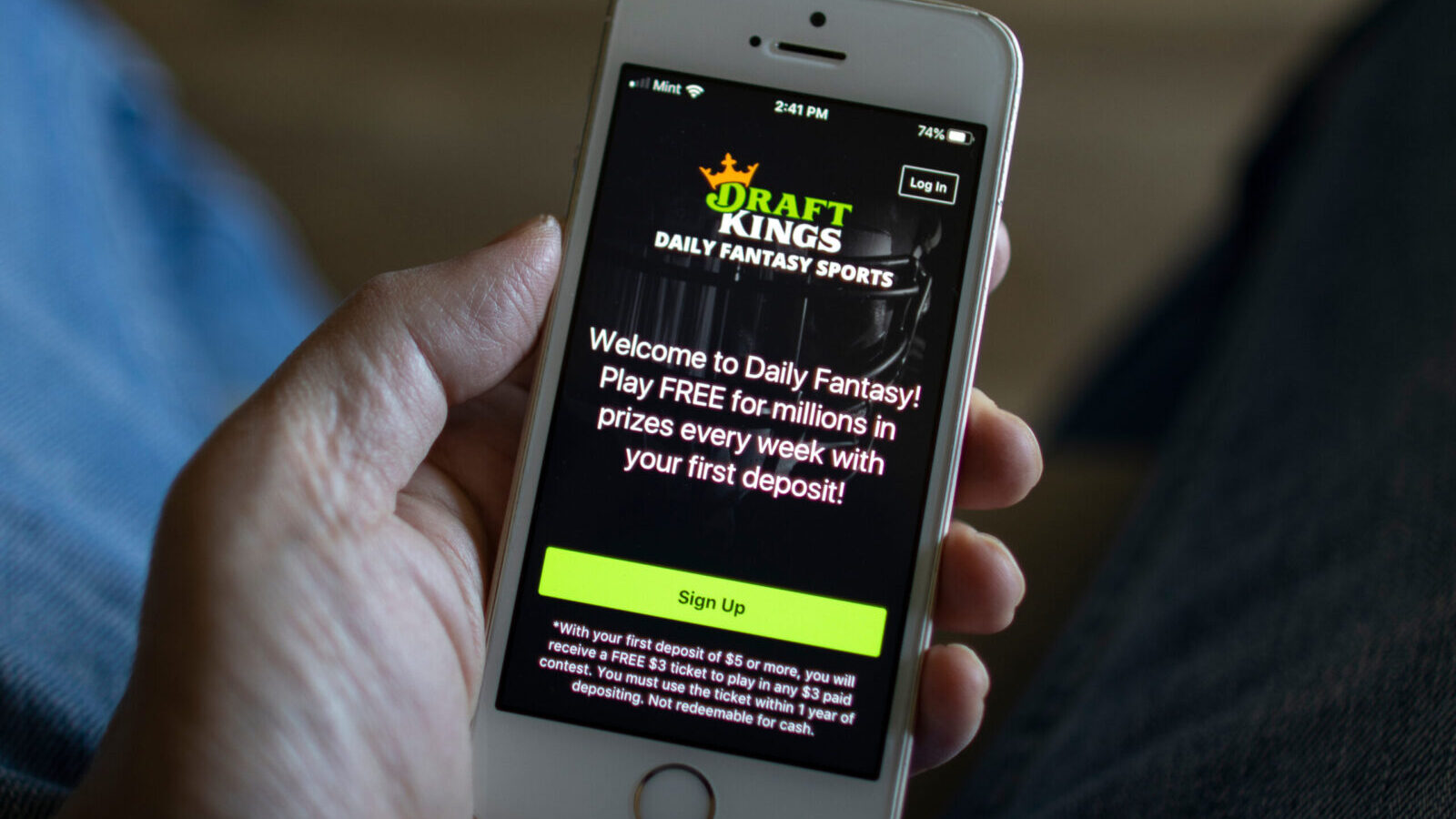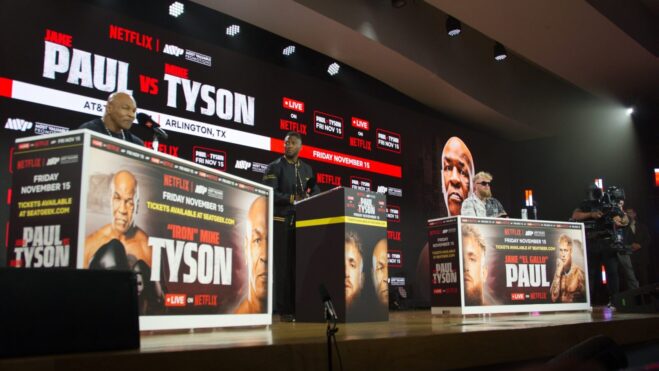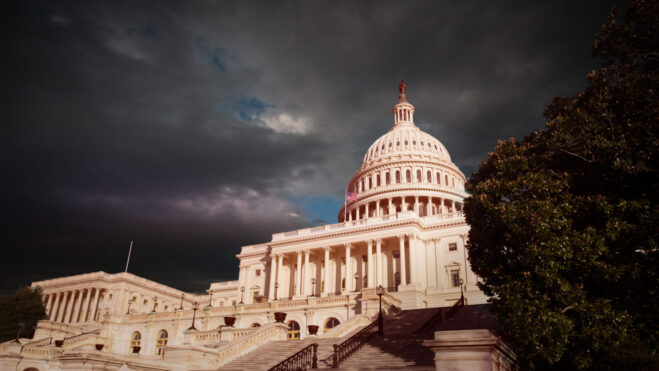Sweepstakes Discourse Reminiscent Of Decade-Old DFS Fight
It’s another rare dispute with the potential to alter the gambling industry fundamentally
3 min

Last week’s Global Gaming Expo (G2E) crystallized what anyone paying even mild attention to the gambling industry has been well aware of for quite a few months: The next big fight will be over “sweepstakes” gaming.
Sweepstakes casinos, or, as the companies themselves put it, social casinos with an additional sweepstakes layer, took over G2E. (For brevity’s sake, I’ll use “sweepstakes casinos” — a term I’m not opposed to — from here on out.)
Infighting isn’t unusual in the gambling industry, and sweepstakes are far from the only disagreements within it:
- Online casino legalization has divided the land-based industry.
- The limiting of bettors and heavy financial burdens to gain market access have caused a rift in the sports betting sector.
- There are also tribal-commercial disputes, arguments over skill games and historical horse racing (HHR) machines, and two dozen other skirmishes.
Still, sweepstakes is the once-a-decade type of fight that has the potential to change the gambling industry fundamentally.
The last encounter that caused such a paradigm shift was the daily fantasy sports battles from nearly a decade ago.
Flashback to 2015
Beginning in late 2015, DFS companies, specifically DraftKings and FanDuel, became victims of their own success.
First, with sports betting prohibited in 49 out of 50 states at the time, bettors were looking for a stand-in product, and DFS fit the bill.
The two companies began plastering ads across the airwaves, which got the “hey, maybe we should look into this” ball rolling.
Still, it wasn’t until a so-called scandal that wasn’t actually scandalous was picked up by major media outlets that virtually every state had no choice but to investigate the products and determine whether they were legal or illegal.
The results were initially mixed, but DFS won the right battles, got legislation passed in the locales that restricted it, and was eventually welcomed into the club, occupying a gambling-adjacent space in the industry.
The success of the stand-in product
What few saw coming was FanDuel and DraftKings’ quick pivot to sports betting and their total domination of that sector.
This is where sweepstakes come back into the discussion. The fact of the matter is that sweepstakes operators exist because of antiquated thinking that restricts the legalization and regulation of online gambling.
Sweepstakes casinos are filling the same void that DFS filled pre-PASPA repeal; they are a stand-in product for licensed mobile casinos, which are only available in seven states.
As Global Gaming Business Publisher Roger Gros put it on LinkedIn, “I was most surprised that there are some ‘respected’ executives in gaming that are supporting these games. But what it comes down to is this: ‘Let’s not allow sweeps to do to the gaming industry what DFS did. Let’s get in the game now.'”
And it’s not just Gros; G2E was a coming-out party of sorts for sweepstakes critics.
Opposition had already formed on the horizon:
- The most vocal critic is Howard Glaser, global head of government affairs and legislative counsel at Light & Wonder, who has waged a one-person tug of war against sweepstakes sites.
- Michigan, Delaware, and Connecticut have issued cease-and-desist notices to sweepstakes operators.
- The American Gaming Association discreetly issued a memo asking states to investigate the legality of sweepstakes operators.
After everyone and their brother with a sweepstakes idea descended on G2E, several new opponents sprung into being.
California tribes should be the most worrisome to the sweepstakes industry, given that California is the biggest market in the U.S. Tribes aren’t going to take kindly to operators sneaking in through the side door and offering online casino games.
“I was on the phone and emailing all day yesterday,” Indian Gaming Association Conference Chair Victor Rocha tweeted. “The lawyers are researching. Tribal leaders are talking. Nothing unites the California tribes like a good ass-whoopin’.”
The legal challenge
There is also a growing list of class-action lawsuits against sweepstakes operators, which, while typically meaningless (the industry is a magnet for class-action lawsuits), provide some extra ammunition to sweepstakes critics.
One of the lawsuits, in Florida, has an extra layer, as it names payment processor Worldpay as a defendant alongside operator VGW. Per attorney Daniel Wallach, the suit alleges that “VGW’s online sweepstakes casino is an illegal gambling operation” and that Worldpay “aided and abetted VGW’s gambling business by acting as its payment processing partner.”
Historically, payment processors have been one of the only available avenues to shut down gray- and black-market gambling operators.
An alternative analogy
As much as the current sweepstakes debate reminds me of DFS 2015-2016, perhaps an even better analogy is the more recent fight over DFS 2.0.
The original DFS fight painted DFS as illegal gambling — nothing more than sports betting by another name. However, it quickly morphed into a battle to change the status quo: to legalize and regulate DFS.
Legalizing sweepstakes casinos isn’t on the table, and if it were, the simpler path would be to legalize and regulate online casinos.
This isn’t a fight about the legalization and regulation of sweepstakes operators. Operators already believe they are operating within the letter of the law — sweepstakes laws — while critics want them prohibited, end of story.
DFS 2.0 was fought on a similar battlefield, and the outcome (as of now) is that some states endorsed DFS 2.0 games, others prohibited the contests, and others requested product modifications.
If this plays out like DFS 2.0, we will see disparate outcomes for sweepstakes from state to state.





